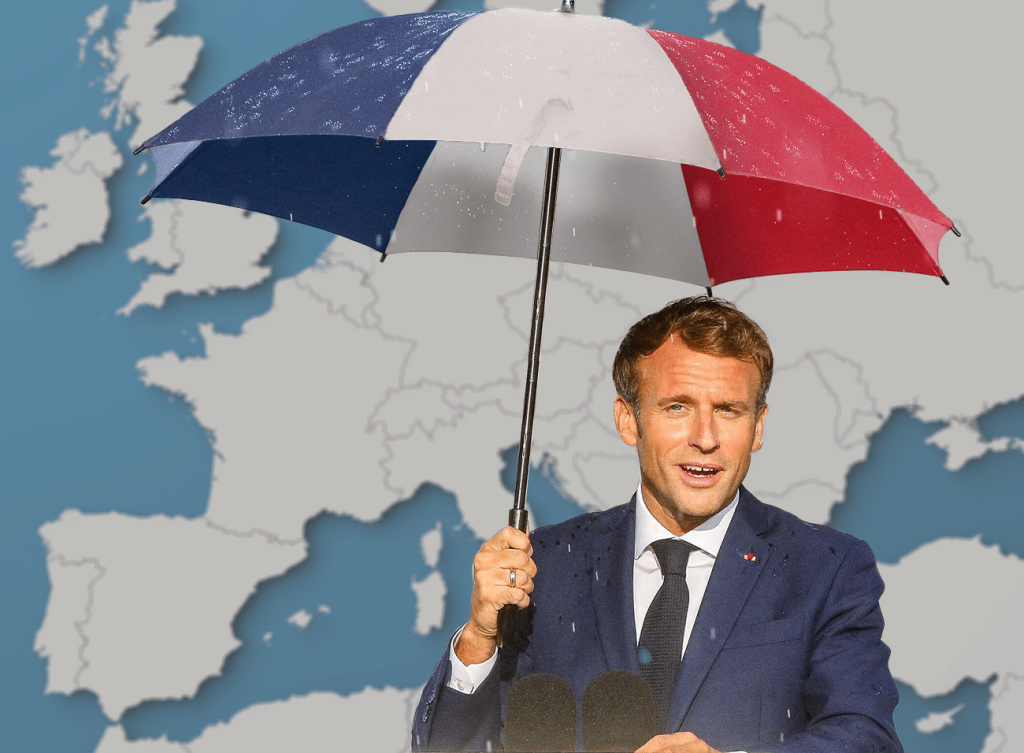Syllabus:
GS2: Bilateral, regional and global groupings and agreements.
Context:
Recently, French President Emmanuel Macron expressed that France is “open to dialogue” about potentially stationing its nuclear weapons in other European countries.
More on the News
- This move comes amid heightened security concerns in Europe due to the ongoing Russia-Ukraine war.
- “Nuclear sharing” model involves a nuclear-weapon state stationing nuclear weapons on allied non-nuclear-weapon states’ territory, with specific arrangements for potential use. Within NATO, the U.S. has maintained such arrangements for decades.
- Currently, U.S. B61 tactical nuclear gravity bombs are understood to be deployed in five NATO states: Belgium, Germany, Italy, the Netherlands, and Turkiye.
- Under these arrangements, the U.S. retains legal ownership and custody of the warheads.
- The U.S. President also retains the power to make the decision to use these weapons, following NATO consultation.
- This Cold War-era posture aims to demonstrate alliance solidarity, and share nuclear risks.
France’s Nuclear Arsenal: Facts & Figures
Warhead Stockpile:
- As of 2024, France holds approximately 280 nuclear warheads, according to the Stockholm International Peace Research Institute (SIPRI).
Delivery Systems:
- These warheads can be:
- Launched independently from submarines
- Air-dropped via Rafale fighter jets
Rationale Behind France’s Offer
- Create deterrence: It could enhance security against Russia by increasing NATO’s nuclear assets and demonstrating European resolve.
- Strategic Autonomy: The proposal aligns with France’s longstanding policy of promoting “European strategic autonomy”, aimed at making the EU more independent in defence and security.
- Macron’s Vision: He emphasised the need for a “sovereign Europe” that can enhance its defence capabilities without overdependence on external powers.
- Concerns Over U.S. Commitment: Former U.S. President Donald Trump’s scepticism about unconditional security guarantees for NATO allies and his emphasis on meeting the 2% GDP defence spending target, have prompted European nations to seek alternative security assurances.
- Shift in French Policy: Historically, France has guarded the independence of its nuclear deterrent. This openness to sharing marks a notable shift in strategic thinking.
European Response to Macron’s Proposal
- In March, Macron had already floated the idea of consulting European allies on how French nuclear weapons could contribute to European defence.
- Germany expressed interest in hosting French nuclear weapons.
Other Countries Open to Talks:
- Poland: PM Donald Tusk is also “talking seriously” with France about nuclear protection.
- Denmark and Lithuania have also indicated openness to hosting or being protected by French nuclear weapons.
Legal Implications under International Law
Non-Proliferation Treaty (NPT) Framework: The 1968 Nuclear Non-Proliferation Treaty (NPT) regulates nuclear weapons globally.
- NPT’s Article I prohibits nuclear-weapon states from transferring weapons or control to others.
NATO’s Justification: NATO argues its nuclear sharing complies with the NPT as:
- Legal ownership and control remain with the U.S.
- No transfer occurs during peacetime

